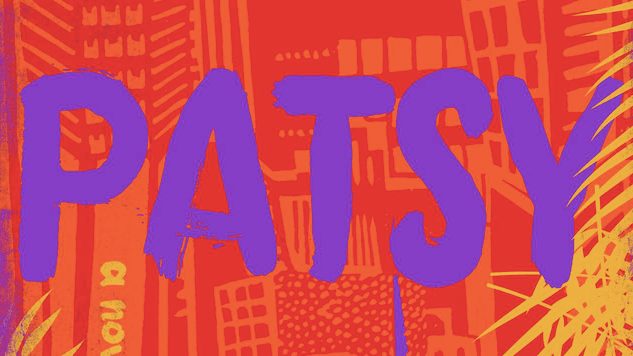Mother-Daughter Bonds Are Tested in Nicole Dennis-Benn’s Powerful New Novel

In her debut novel Here Comes the Sun, Nicole Dennis-Benn writes about exploitation and how it exerts itself in relationships between mothers and daughters. Her latest novel, Patsy, returns to mother-daughter bonds, this time through the lens of abandonment and isolation.
The titular Patsy is a civil servant living in the Pennyfield neighborhood of Kingston, Jamaica, a part of the city known for poverty and a vicious gang leader. She has a daughter, Tru, and the two of the live with Patsy’s devout mother. But Patsy wants more from life and for years has longed to follow her best friend and lover Cicely to New York. When she’s finally granted an American visa, she leaves Tru with the young girl’s father. She promises to eventually come back to Pennyfield and to send money for Tru’s care until then.
 She breaks her promises.
She breaks her promises.
Patsy arrives in New York to discover that an undocumented immigrant can’t make it far; she lives in a series of unstable rented rooms during her first decade in the city. She also learns that the dream she shared with Cicely of living together isn’t going to materialize. Cicely is married with a son, a large house and an abusive husband. While Patsy struggles in New York, Tru struggles with her mother’s silence and her own sexuality.
One of the novel’s most fascinating and heartbreaking facets is the attention Dennis-Benn pays to intergenerational conflict. Patsy holds resentment for her mother, who stopped caring for Patsy after devoting her life to religion. And Tru resents Patsy, who does not contact her daughter for 10 years. The guilt cuts two ways: Tru feels she’s let her mother down by not being good enough, while Patsy fears the anger of a daughter she wanted to leave behind.
But the two are linked by shared personal conflicts; like Patsy, Tru is queer and begins navigating a highly charged friendship with a girl from her school. And like Patsy, who did not want to be a mother, Tru bristles at the ways in which she’s restricted as a girl, binding her chest and cutting her hair short so she can play soccer with the boys. What could be a nurturing relationship for Patsy and Tru, one built on their shared experiences in a community that rejects their identities, instead makes them both feel more isolated from one another.
No one in Patsy is one-dimensional (with the exception of Cicely’s husband, an easy-to-hate villain). Roy, Tru’s father and guardian, is a lackluster dad to his less-macho son, but he champions Tru’s athleticism and embraces her non-conforming gender identity. His wife Marva, who always wanted a daughter, guilts Tru about not being feminine enough yet gives her stability—something Patsy’s mother failed to do. Even Pope, the gang leader spoken of as an example of Pennyfield at its worst, has surprising twists in his nature.
Everyone in Dennis-Benn’s novel is determined to find their way, even if getting there requires a willingness to see past their own insecurities and to acknowledge the same in others. For all the pain caused and endured, Patsy, her family and the ones who love them persevere. Dennis-Benn doesn’t tie too fine a bow on it all—homophobia and racism are omnipresent threats—but she offers the reader some hope that good intentions can add up to something beautiful.
Bridey Heing is a freelance writer based in Washington, DC. More of her work can be found here.







































